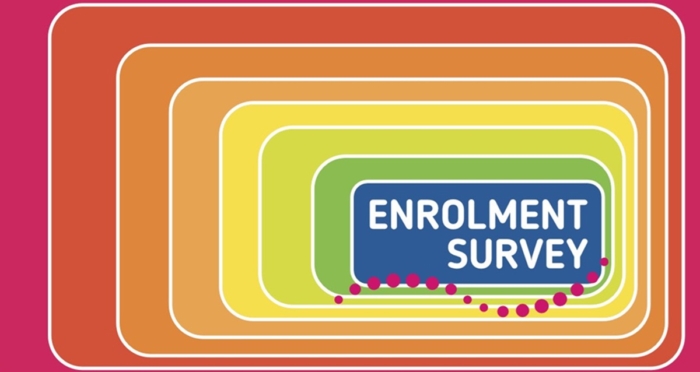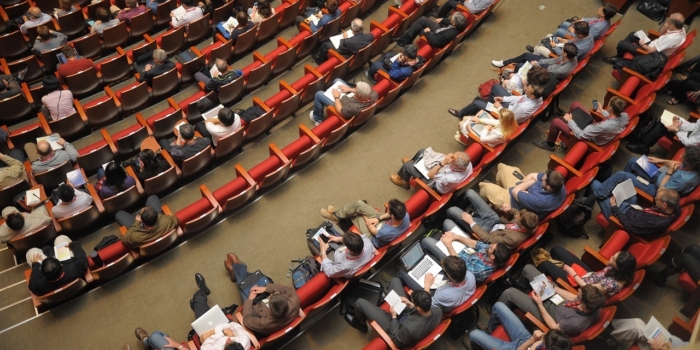We keep you informed about the latest policy changes, news and events through regular email Bulletins, our website and guest blogs, as well as through access to the exclusive members’ area of the EPC website and targeted briefing events. Click through the tabs below to explore some of our blog highlights from June 2023 to April 2024. Or see older blogs.
Dr Emma A Taylor, Royal Academy of Engineering Visiting Professor, Cranfield University, and Professor Sarah Jayne Hitt, PhD SFHEA, NMITE, Edinburgh Napier University, discuss embedding ethics in engineering education through wide use of deaf awareness: a gateway to a more inclusive practice.
They say that “One in five adults in the UK are deaf, have hearing loss or tinnitus. That is 12 million adults or 20% of the population. In the broader context of‘ ‘communication exclusion’ (practices that exclude or inhibit communication), this population figure may be even larger, when including comprehension issues experienced by non-native speakers and poor communication issues such as people talking over one another in group settings such as during meetings.” and that “Across all spheres, we suggest that becoming deaf aware is one way to begin to address communication exclusion issues.”
Click here to read more.
Mike Murray, [Senior Teaching Fellow in Construction Management], discusses how he developed and implemented a teaching resource in the Sustainability Toolkit, and what he’s learned from integrating it into his modules over the years.
Click here to read more
As part of our Neurodiversity week guest blog series, Prof Beverley Gibbs visits what we know and what we don’t know about neurodiversity in HE engineering. She dipped a foot in the difficult waters of what we do and don’t know about the prevalence of conditions associated with neurodiversity, their presence in engineering, and the challenges of effectively supporting students in an HE context.
Click here to read more.
As part of our Neurodiversity week guest blog series, Engineering Council’s Ben Jones shared details of the Engineering Council’s ‘Guidance Note on supporting neurodivergent applicants for registration’. The professional registration process is experienced by many students in the years after their studies, many of whom may consider themselves as, or be diagnosed as, neurodivergent in some respect. The Engineering Council’s new Guidance Note on supporting neurodivergent applicants for registration aims to support the Professional Engineering Institutions (PEIs) to embrace equality, diversity, inclusion (EDI) and accessibility, in particular in relation to applying for professional registration.
Click here to read more.
For Neurodiversity Celebration Week, our own EPC student data fellow, Zoe McCready, makes a compelling case for a neurodiversity-affirming approach in engineering HE. Zoe suggests that whilee all have a basic understanding of the importance of engineering a neurodiverse future, it feels like only some of us may be in a position to translate this understanding into tangible action going forward. But all of us can play a part in contributing to the formation of a neurodiversity-affirming culture within engineering. We can all help to challenge preconceptions, myths, and stereotypes. We can all make an effort to help pave the way to increased collective awareness, understanding, and acceptance. These are the first building blocks in the construction of neuro-inclusive cultures and environments, a development in which we should all be proud to be able to participate.
Click here to read more.
For Neurodiversity Celebration Week, we hear from an experienced professional in ground engineering a who is neurodivergent (autistic, dyslexic, and dyspraxic) and visually impaired. Martin Griffin describes his conditions as “real, messy, complex, lifelong and unique to me”. He tells his story of working in STEM as a chartered engineer and chartered geologist.
Click here to read more.
To kick off Neurodiversity Celebration Week, Prof Amanda Kirby talks to us about opportunties for inclusion and equity in Engineering, focusing our minds on the link between neurodiversity and the UN Sustainable Development Goals. Embracing neuroinclusion aligns with the UN Sustainable goals for development by promoting inclusive education, reducing inequalities, and fostering innovation.
Click here to read more.
The EPC has introduced a major new initiative to ensure the engineers of tomorrow can rise to the challenges of the climate emergency: The Sustainability Toolkit, produced with support from the Royal Academy of Engineering and Siemens. EPC President, Prof John Mitchell invites you to explore.
Click here to read more.
For International Women’s Day, EPC Data Fellow Jessica Upton celebrates those university engineering departments who are working hard to tackle sexism in Engineering. But also spells out some of the key endemic barriers faced by women in engineering and outline what she thinks we need to do next.
Click here to read more.
Prof. Roger Penlington highlighted a British Council funded and looking at the language related barriers to engineering careers of women who have English as a second language in partnership with the Islamic University of Gaza.
Click here to read more.
Elizabeth Robertson, Teaching Fellow in the Department of Electronic and Electrical Engineering at The University of Strathclyde, discusses how we need to move past our discomfort in order to teach ethics in engineering.
Elizabeth notes that “The task for us as educators then is to demonstrate the importance of ethics to our students and to offer students a learning experience that is relevant to them at whatever stage they are and that that will also offer the most impact – but as with so many things, that is easier said than done.”
She concludes by saying that “It’s essential that tomorrow’s graduate engineers understand that ethics is not a ‘tack on’ statement at the end of a project proposal but rather that ethics is a core part of the role of an engineer. Using the Engineering Ethics Toolkit to help integrate ethics into the core of their education today is a very good way to do that. I recommend the Engineering Ethics Toolkit to all educators – the wealth of the resource cannot be understated in its support to a teacher’s session design and, most importantly, to a student’s learning.”
Click here to read more.




